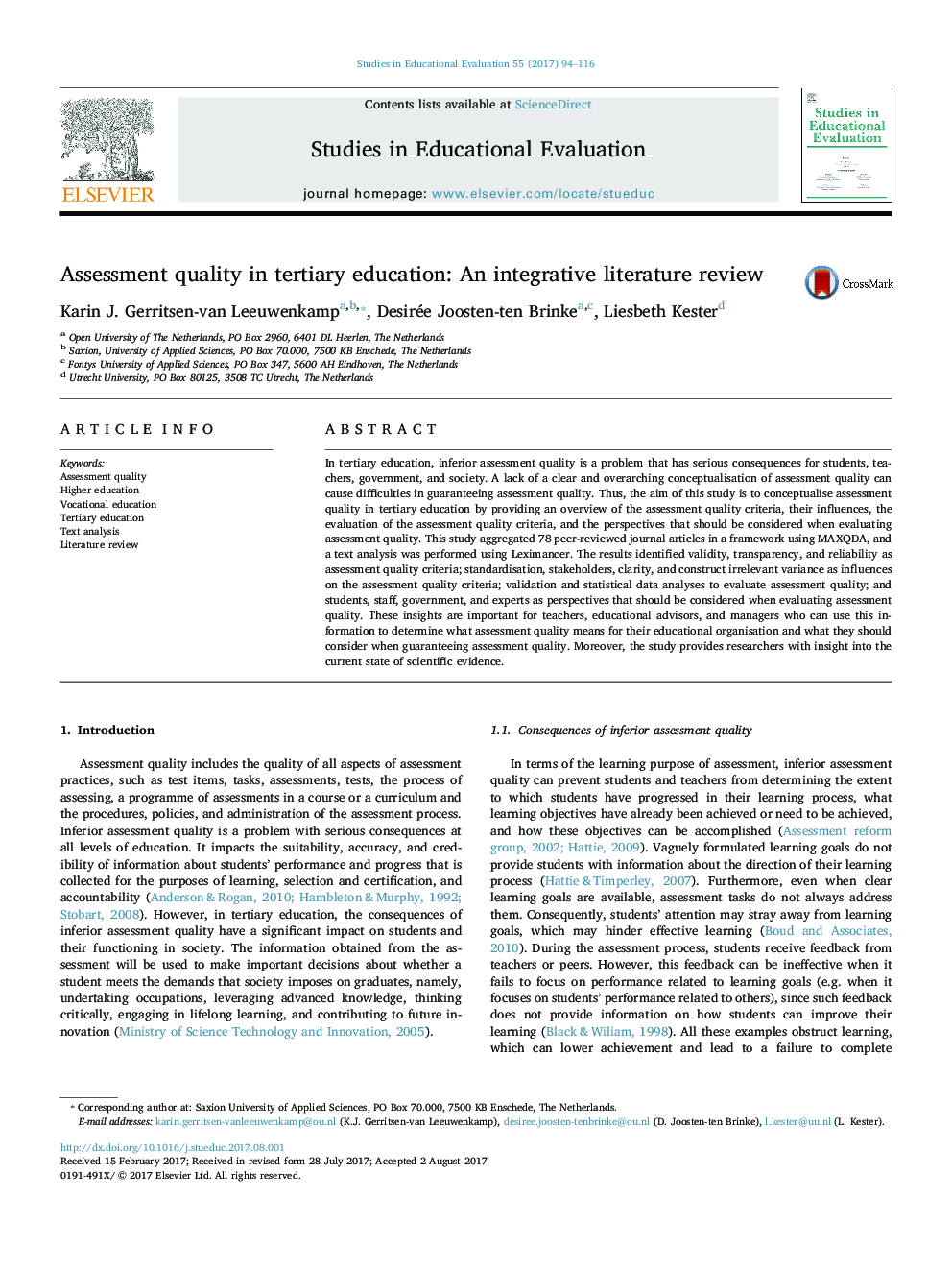| Article ID | Journal | Published Year | Pages | File Type |
|---|---|---|---|---|
| 4941222 | Studies in Educational Evaluation | 2017 | 23 Pages |
Abstract
In tertiary education, inferior assessment quality is a problem that has serious consequences for students, teachers, government, and society. A lack of a clear and overarching conceptualisation of assessment quality can cause difficulties in guaranteeing assessment quality. Thus, the aim of this study is to conceptualise assessment quality in tertiary education by providing an overview of the assessment quality criteria, their influences, the evaluation of the assessment quality criteria, and the perspectives that should be considered when evaluating assessment quality. This study aggregated 78 peer-reviewed journal articles in a framework using MAXQDA, and a text analysis was performed using Leximancer. The results identified validity, transparency, and reliability as assessment quality criteria; standardisation, stakeholders, clarity, and construct irrelevant variance as influences on the assessment quality criteria; validation and statistical data analyses to evaluate assessment quality; and students, staff, government, and experts as perspectives that should be considered when evaluating assessment quality. These insights are important for teachers, educational advisors, and managers who can use this information to determine what assessment quality means for their educational organisation and what they should consider when guaranteeing assessment quality. Moreover, the study provides researchers with insight into the current state of scientific evidence.
Related Topics
Social Sciences and Humanities
Social Sciences
Education
Authors
Karin J. Gerritsen-van Leeuwenkamp, Desirée Joosten-ten Brinke, Liesbeth Kester,
